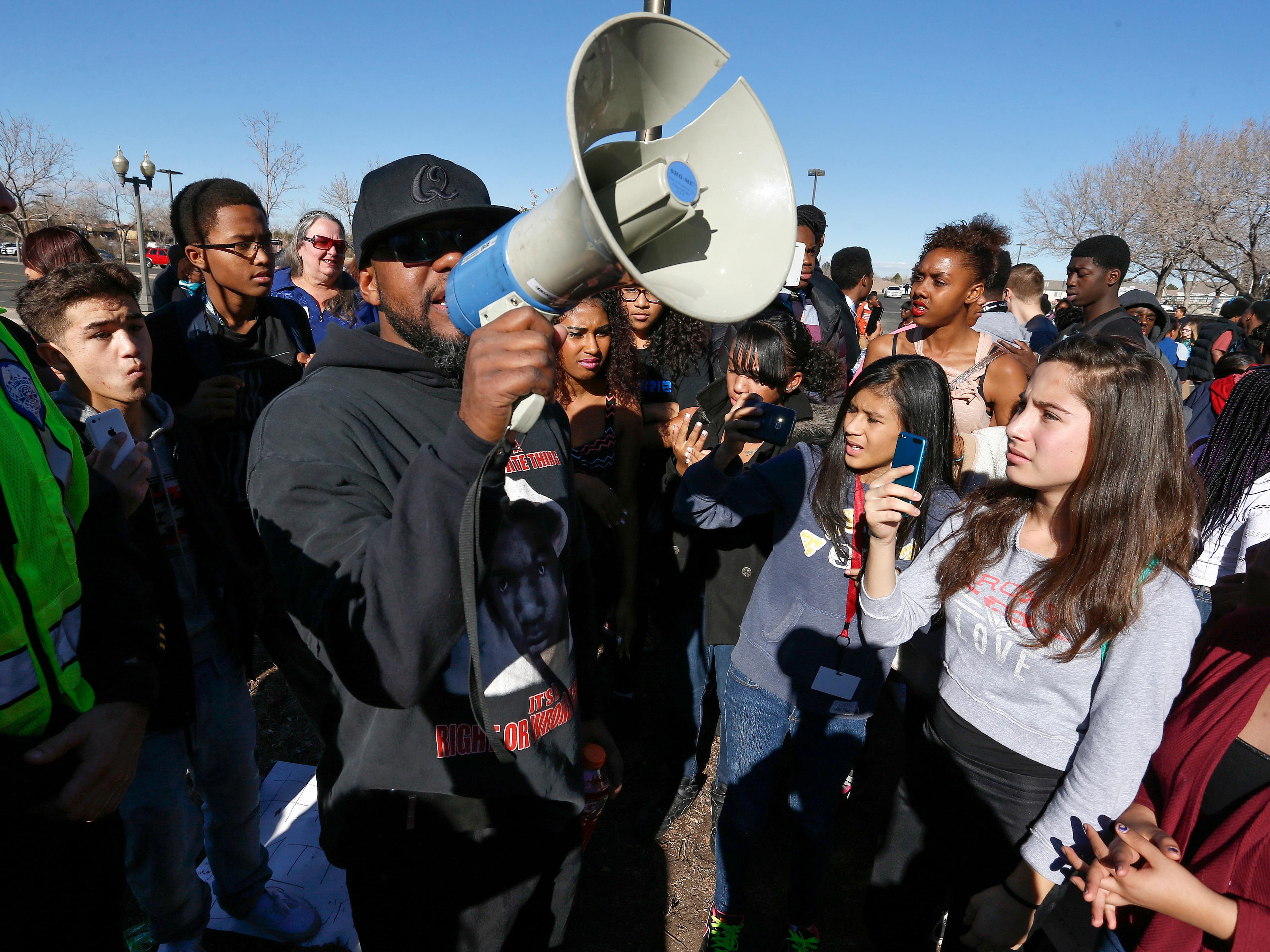
On Saturday, in association with an exhibit called Race: Are We So Different?, History Colorado Center hosted two workshops for parents, teachers and caregivers to help them talk with children about race.
The workshops took place as protests continued across the country, including in Denver, in response to news from Ferguson, Missouri, and Staten Island, New York. In both places, unarmed black men were killed by white police officers, and each jurisdiction announced recently it will not charge the offers for the deaths.
Dena Samuels lead the workshops at History Colorado Center. She's a sociologist at University of Colorado Colorado Springs, and has a new book, "The Culturally Inclusive Educator: Preparing for a Multicultural World."
Samuels was a guest on "Colorado Matters" before the workshops, and she explained the damaging effects of "colorblindness," a term that means ignoring racial differences.
"If you're standing in front of a person of color and you say, 'I don't see your color,' you're basically saying, 'I don't see you. I don't see the struggles you've had,'" she told CPR's Ryan Warner. "I'm generalizing here, but for the most part people of color know they're not going to be treated the same by police officers, in their classrooms, in their office places."
Samuels recommends that when discussing the events in Ferguson and Staten Island with kids, it's best to start by asking what they think and feel. She said listening is more important than talking.
For adults, Samuels recommends taking a test developed by researchers at Harvard University that reveals inherent biases. She said identifying your own biases is an essential first step to improving your attitudes towards people of different races. And, she said that everyone has inherent biases, often unintentional, which are fueled by innumerable societal messages.
"We're exposed to media and messages from our families and our classmates and our coworkers. The messages have a racist composition to them," she said. "We're bombarded with racist, sexist, heterosexist messages, and they sink in."








